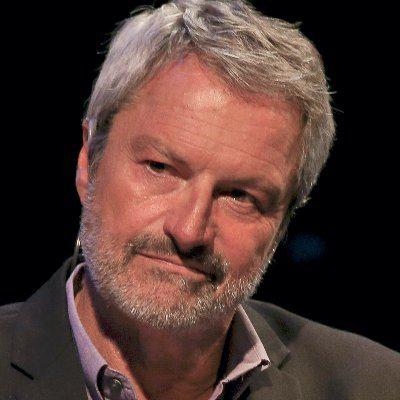The UK Metric Association
The UK Metric Association (UKMA) is an independent, non-party political, single issue organisation which advocates the full adoption of the international metric system (“Système International” – SI) for all official, trade, legal, contractual and other purposes in the United Kingdom as soon as practicable. We also campaign for better consumer protection through accurate and consistent use of metric units of measurement in order to achieve price transparency.
On this website you will find the following information:
- accurate information to explain the metric system and to correct misunderstandings and debunk myths
- a demonstration of how the metric system is much easier to use than obsolete imperial
- practical help for people unaccustomed to metric
- correct use of metric units and symbols, including the UKMA Measurement Units Style Guide to explain correct metric usage
- an explanation of why it is in Britain’s interest to complete the changeover to the international metric system as soon as possible
- what you can do to help the UK to complete its metric transition
- responses to public consultations
- sources and references for researchers and journalists
Metric Views blog
In addition to this website, UKMA also runs Metric Views, a blog dedicated to issues that arise from the measurement muddle in the UK.
Articles appear regularly on topical and historical subjects. Over the years, hundreds of articles have been published. The blog provides a forum for the discussion of measurement issues, and acts as a repository of evidence supporting the case for the completion of metrication in the UK.
It’s time to move on
Measurement affects us all when we work, buy food, fill up the car with petrol, weigh ourselves, go for a medical check-up, buy a property, go out for a drink, go for a walk or tend the garden. Modern Britain needs the best set of measures available.
99% of 100 000 respondents reject Government proposals to row back on metrication
After a long delay, the results of the Government’s 2022 consultation on the “Choice on Units of Measurement: Markings and Sales” were finally published on 27 December 2023.
In what can only be described as an overwhelming response, 98.7% of responses preferred purely metric, or keeping metric as the primary unit of measurement for markings and sales, with only 1.3% in favour of purely imperial, or an increased use of imperial units. The 17.6% of responses preferring “purely metric” were despite there being no option for “purely metric” in the choices presented in the consultation response form.
Survey exposes the failure of measurement policy in the UK
See our report “Still a Mess” analysing the results of a survey commissioned by UKMA.

UKMA is delighted to welcome our two new patrons
Gavin Esler

I think our imperial madness is as idiotic as suggesting the British people should abandon the future of electric cars and instead be content to buy ourselves a horse and cart. Or perhaps the British army should abandon assault rifles and retrain with flintlock muskets instead. Or, is there any point in me writing this on my laptop when a quill pen is undoubtedly a serviceable alternative?
The sad truth is that British imperial madness is rooted in a very British idiocy, nostalgic pessimism. There are those – and the British government minister Jacob Rees-Mogg is one prominent example – for whom everything in the past was somehow “better” that the present and everything in the future suspected of being inevitably even worse. Rees-Mogg epitomises British nostalgic pessimism. He recently ordered a review into whether imperial measures should be reintroduced in those areas where they have already been phased out.
Google was invented in 1998, and if Mr Rees-Mogg were to Google where imperial measures are currently still used he would find three countries outside the UK. These are the USA, Liberia and Myanmar. But even this is misleading. As someone who lived in the US for many years I can state clearly that an American gallon (and that of Liberia, which takes its cue from the USA) is very different from a British imperial gallon. Indeed the US has always been confused about its own system. For example, the biggest American artillery piece in World War Two was the 240 mm howitzer – defined in metric terms. But it fired a 360 lb shell up to 25,000 yards. The Americans, in other words, have imperial-style names mixed up with metric names, and, like the British, have not yet committed to join the rest of the world in the 21st century by entirely embracing the far simpler and less confusing metric system. And since the British imperial system remains very different from that of the United States and Liberia, Jacob Rees-Mogg appears to wish in the 21st century Britain should consider adopting a system related to that of Myanmar, a military dictatorship which, undoubtedly, the nostalgic pessimists still call “Burma”.
Those of us who prefer to take Britain forward into the 21st century rather than backwards to Tudor times recognise that only a fully metricated United Kingdom can be fit for the future. As for the nostalgic pessimists, perhaps Mr Rees-Mogg as “Brexit Opportunities Minister” may wish to investigate the trading opportunities with Mesopotamia, Cathay and the Ottomans.
Gavin has been a presenter and anchor on Newsroom South East, BBC News 24, Dateline London, Four Corners, Film Review and, from January 2003 until January 2014, he was a main presenter on BBC Two’s flagship political analysis programme, Newsnight.
He is a man well known for speaking his mind and has been a powerful supporter of many worthy causes. His political engagement included standing for the Change UK party in the 2019 European Parliament elections.
UKMA is proud to have him as a patron of the Association.
Professor Jim Al-Khalili

As a scientist, using the metric system on a daily basis is for me more than just a matter of ideology, convenience or a badge of honour showing off my credentials as a progressive global citizen in the modern world. Rather, it is the only way I am able to do good science and develop my understanding and knowledge of the universe.
To my mind, those who resist embracing this utterly sensible measuring system are in a way being antiscientific. While I find it amusing, I am in fact rather delighted when my students admit that they have no idea how long a yard is. This confirms to me that our education system is working.
I do hope that those outmoded – dare I say sometimes even xenophobic – voices calling for a return to the outdated Imperial system fade away and are ignored. While Imperial units themselves can be retained for amusing quiz questions like, “How many chains are there in a furlong?”.
Jim is a leading academic, based at the University of Surrey where he holds a Distinguished Chair in physics as well as a university chair in the public engagement in science.
He is a presenter of TV science documentaries, such as the BAFTA nominated Chemistry: A Volatile History, and hosts the long-running weekly BBC Radio 4 programme, The Life Scientific, in which he excels at making the work of distinguished scientists accessible to the public.
